Results
-
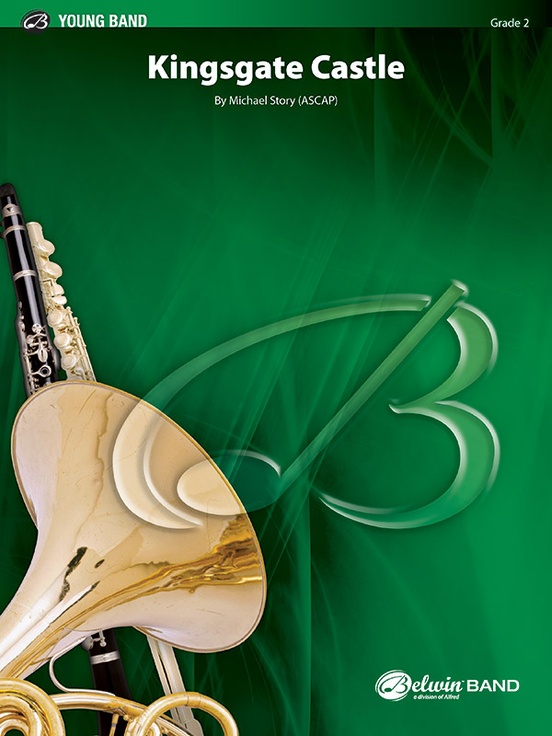 £61.95
£61.95Kingsgate Castle (Concert Band - Score and Parts) - Story, Michael
Kingsgate Castle by Michael Story is a stunning work in a traditional overture form beginning in 3/4 with a bright tempo. There is a beautiful contrasting section at a moderately slow speed before returning to the excitement. With strong melodic lines and contemporary harmonies, this piece will be a highlight in your next concert. Duration: 2.45
Estimated dispatch 7-14 working days
-
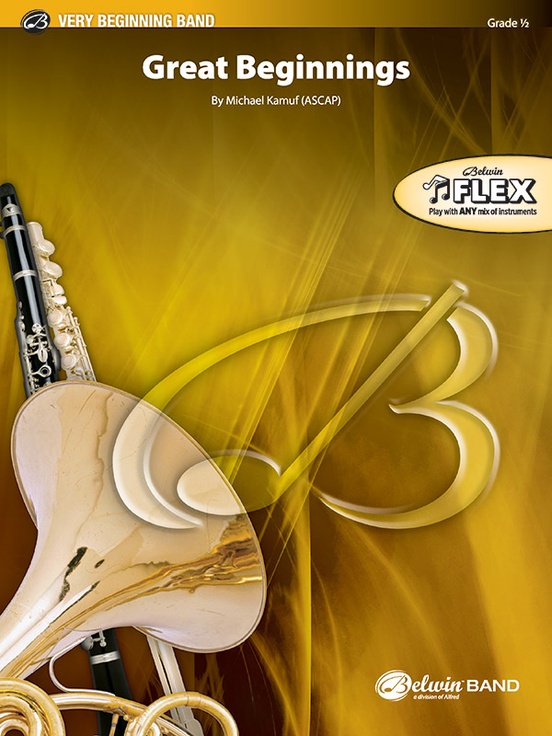 £53.95
£53.95Great Beginnings (Flexible Ensemble - Score and Parts) - Kamuf, Michael
This version of Great Beginnings by Michael Kamuf is designed with maximum flexibility for use by any mix of instruments: wind, strings, and percussion, including like or mixed-ensembles with as few as 4 players. The suggested instrumentation and a customisable Teacher Map will help you plan out how to best assign parts to suit your ensemble's needs. The 4-part instrumentation will support balanced instrumentation of the lower voices. It also comes with supplemental parts for maximum flexibility. With the purchase of this piece, permission is granted to photocopy the parts as needed for your ensemble. A percussion accompaniment track is also available as a free download. String parts have been carefully edited with extra fingerings and appropriate bowings to support students in mixed ensembles playing in less familiar keys. This energetic composition is the perfect opener or closer employing soaring melodies, rich harmonies, and driving rhythms. All instruments get an opportunity to play melodic material, and this piece is a great vehicle to introduce slurs and accents to your beginners. Duration: 2.00
Estimated dispatch 7-14 working days
-
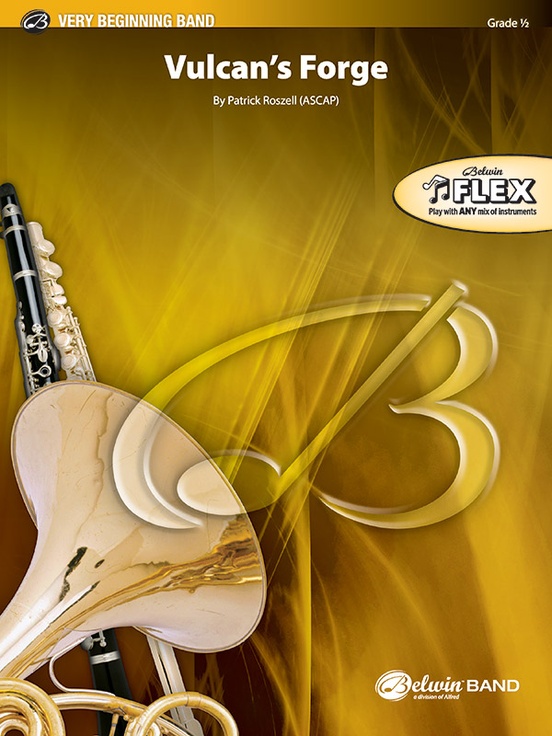 £53.95
£53.95Vulcan's Forge (Flexible Ensemble - Score and Parts) - Roszell, Patrick
This version of Vulcan's Forge by Patrick Roszell is designed with maximum flexibility for use by any mix of instruments: wind, strings, and percussion, including like or mixed-ensembles with as few as 4 players. The suggested instrumentation and a customisable Teacher Map will help you plan out how to best assign parts to suit your ensemble's needs. The 4-part instrumentation will support balanced instrumentation of the lower voices. It also comes with supplemental parts for maximum flexibility. With the purchase of this piece, permission is granted to photocopy the parts as needed for your ensemble. A percussion accompaniment track is also available as a free download. String parts have been carefully edited with extra fingerings and appropriate bowings to support students in mixed ensembles playing in less familiar keys. Patrick Roszell's original composition is musically designed to portray the Ancient Roman god of fire of metalworking, Vulcan. This piece is accessible to students in the second half of their first year of instruction. The piece also has the option to introduce young woodwind players to trill technique. Duration: 1.45
Estimated dispatch 7-14 working days
-
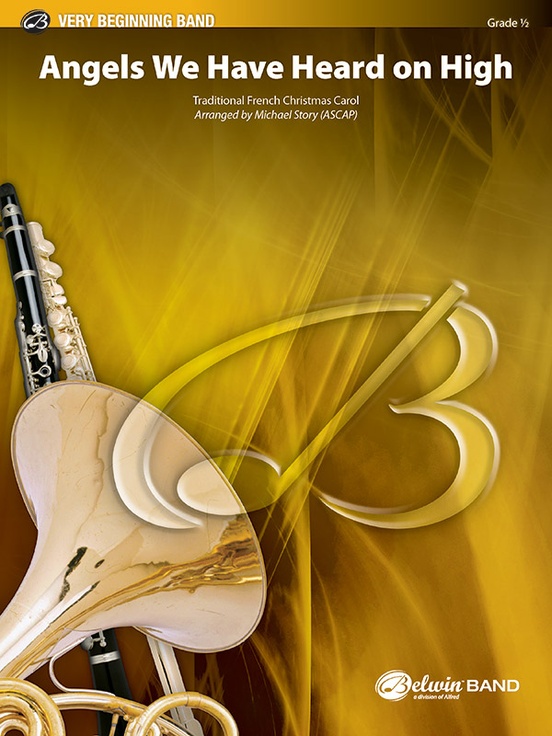 £47.50
£47.50Angels We Have Heard on High (Concert Band - Score and Parts) - Story, Michael
This arrangement of the popular French Christmas carol, Angels We Have Heard on High by Michael Story, has been written for students halfway through their first year in band. It has been scored using just the first few notes presented in most beginning band methods, only quarter, half, and whole note rhythms in the winds, and without a written key signature. Duration: 1.45
Estimated dispatch 7-14 working days
-
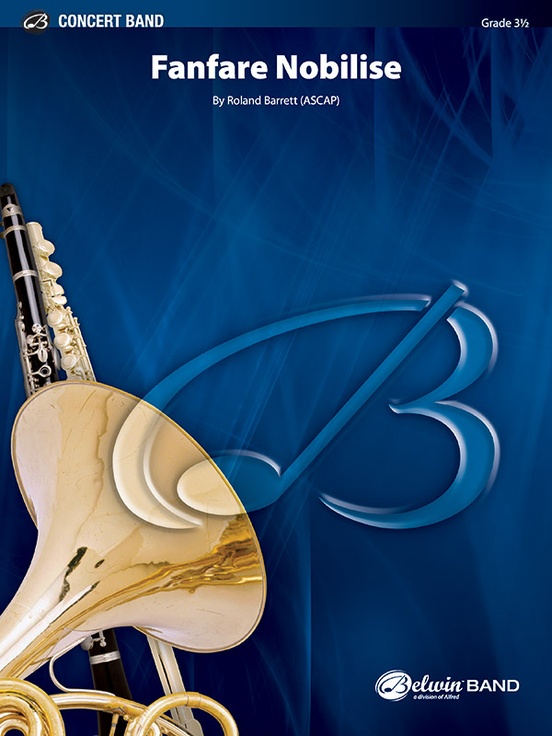 £64.95
£64.95Fanfare Nobilise (Concert Band - Score and Parts) - Barrett, Roland
Fanfare Nobilise was commissioned by the Noblesville, Indiana bands in honor of the 150th anniversary of the school district. It features a bold and impactful opening statement followed by more stately but crisply articulated passages leading to a powerful and climactic ending. This original Roland Barrett composition will serve as a spectacular opener for your next concert. Duration: 3.15
Estimated dispatch 7-14 working days
-
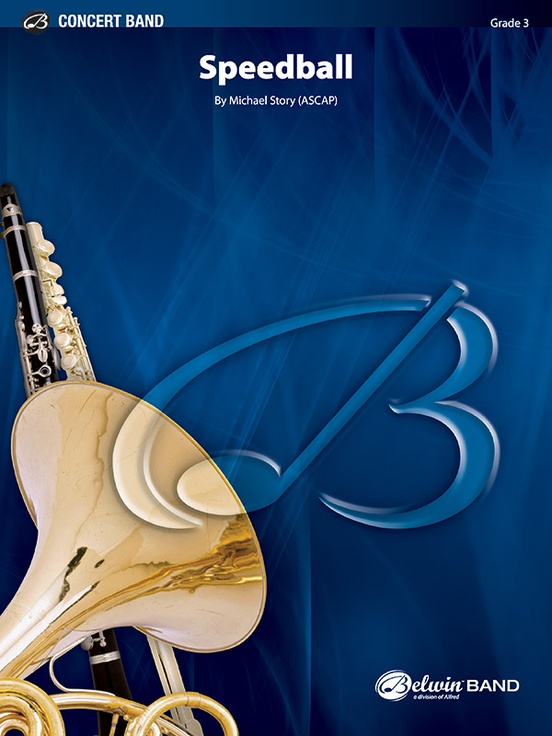 £64.95
£64.95Speedball (Concert Band - Score and Parts) - Story, Michael
A concert, contest, or festival opener cast in traditional ABA overture form, the piece maintains the same energetic tempo throughout. The enhanced contemporary elements composer Michael Story selected permit a fresh new feel. Demonstrating rhythmic precision, ensemble consistency and conformity, and varied articulations, Speedball will provide the clarity necessary for a successful performance. A vigorous musical adventure! Duration: 2.30
Estimated dispatch 7-14 working days
-
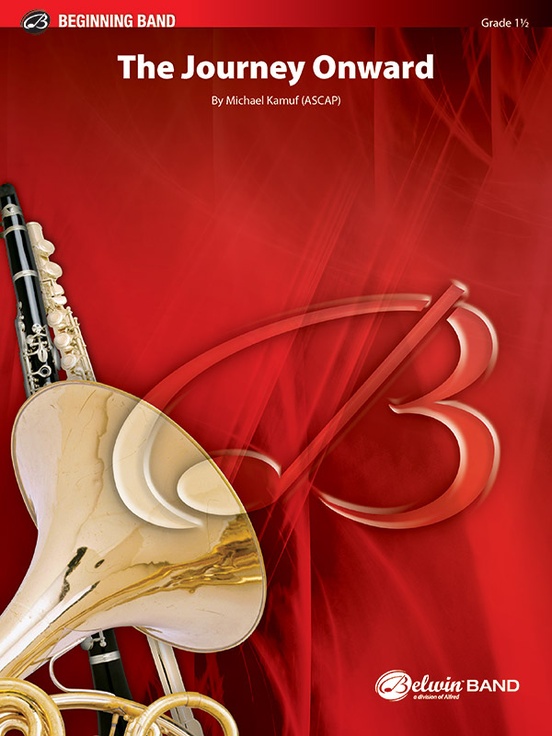 £52.95
£52.95The Journey Onward (Concert Band - Score and Parts) - Kamuf, Michael
The Journey Onward was conceived by Michael Kamuf for beginning band students. It presents an opportunity to demonstrate mastery of the concepts of syncopation, phrasing, and slurs. Set in an ABA form, contrasting themes and driving rhythms are passed around the ensemble making this a solid choice for both concert and festival performances. Duration: 2.15
Estimated dispatch 7-14 working days
-
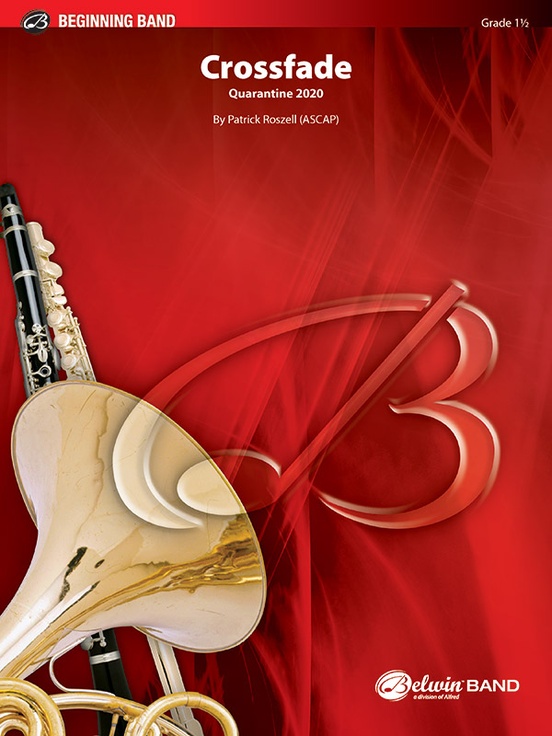 £52.95
£52.95Crossfade (Quarantine 2020) (Concert Band - Score and Parts) - Roszell, Patrick
2020 was an interesting year. With schools shutting down, and going into quarantine, it felt like each day just faded into the next. This playable musical journey through 2020 offers a wide variety of articulations, dynamics, and textures. Crossfade by Patrick Roszell contains some "movie" dissonances throughout offering the opportunity to teach accidentals, dissonance, and resolution, as well as ensemble balance. Duration: 1.30
Estimated dispatch 7-14 working days
-
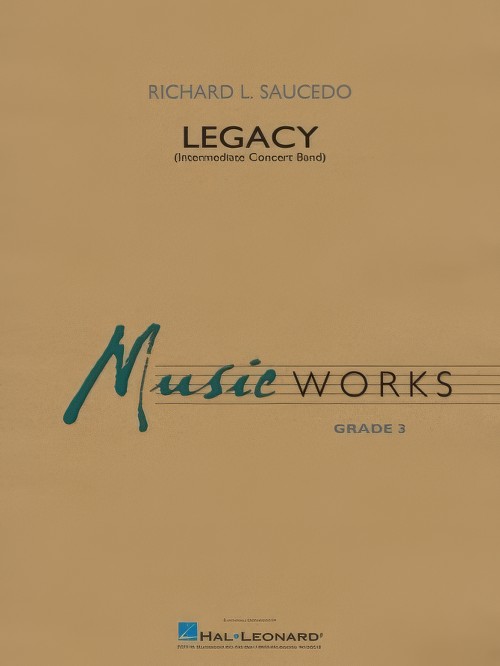 £72.99
£72.99Legacy (Concert Band - Score and Parts) - Saucedo, Richard L.
Here is an easier version of Richard's dynamic work for band that commemorates the 150th anniversary of Paige's Music in Indianapolis, IN. Legacy features an intense rhythmic drive, creative laying and textural effects, and a soaring melody that serves as an inspirational focal point. Compatible in performance with the Advanced Version. Duration: 4.30
Estimated dispatch 7-14 working days
-
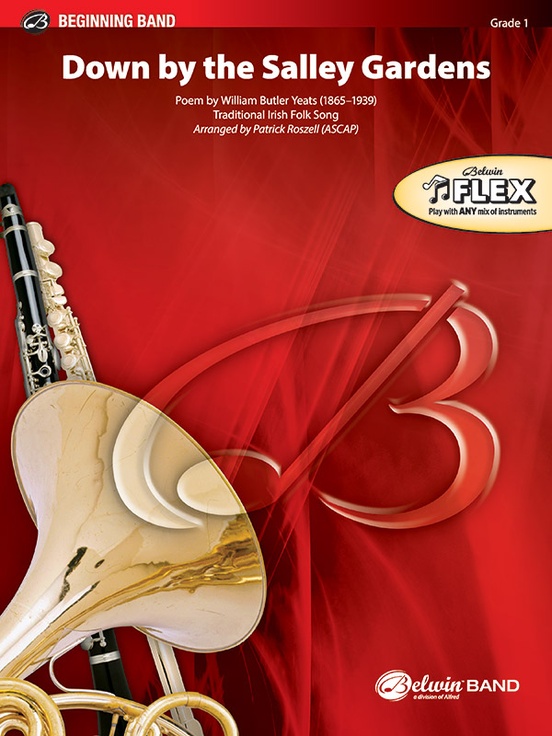 £58.50
£58.50Down by the Salley Gardens (Flexible Ensemble - Score and Parts) - Roszell, Patrick
This version of Down by the Salley Gardens arranged by Patrick Roszell is designed with maximum flexibility for use by any mix of instruments: wind, strings, and percussion, including like or mixed-ensembles with as few as 4 players. The suggested instrumentation and a customisable Teacher Map will help you plan out how to best assign parts to suit your ensemble's needs. The 4-part instrumentation will support balanced instrumentation of the lower voices. It also comes with supplemental parts for maximum flexibility. With the purchase of this piece, permission is granted to photocopy the parts as needed for your ensemble. A percussion accompaniment track is also available as a free download. String parts have been carefully edited with extra fingerings and appropriate bowings to support students in mixed ensembles playing in less familiar keys. The union of this glorious traditional Irish folk song with William Butler Yeats' compelling poem results in an expressive choice, arranged by Patrick Roszell. Lyrical in nature, there are musical teaching opportunities for slurring, sustaining phrases, intonation, and dynamic shading. Stunning! Duration: 3.15
Estimated dispatch 7-14 working days
